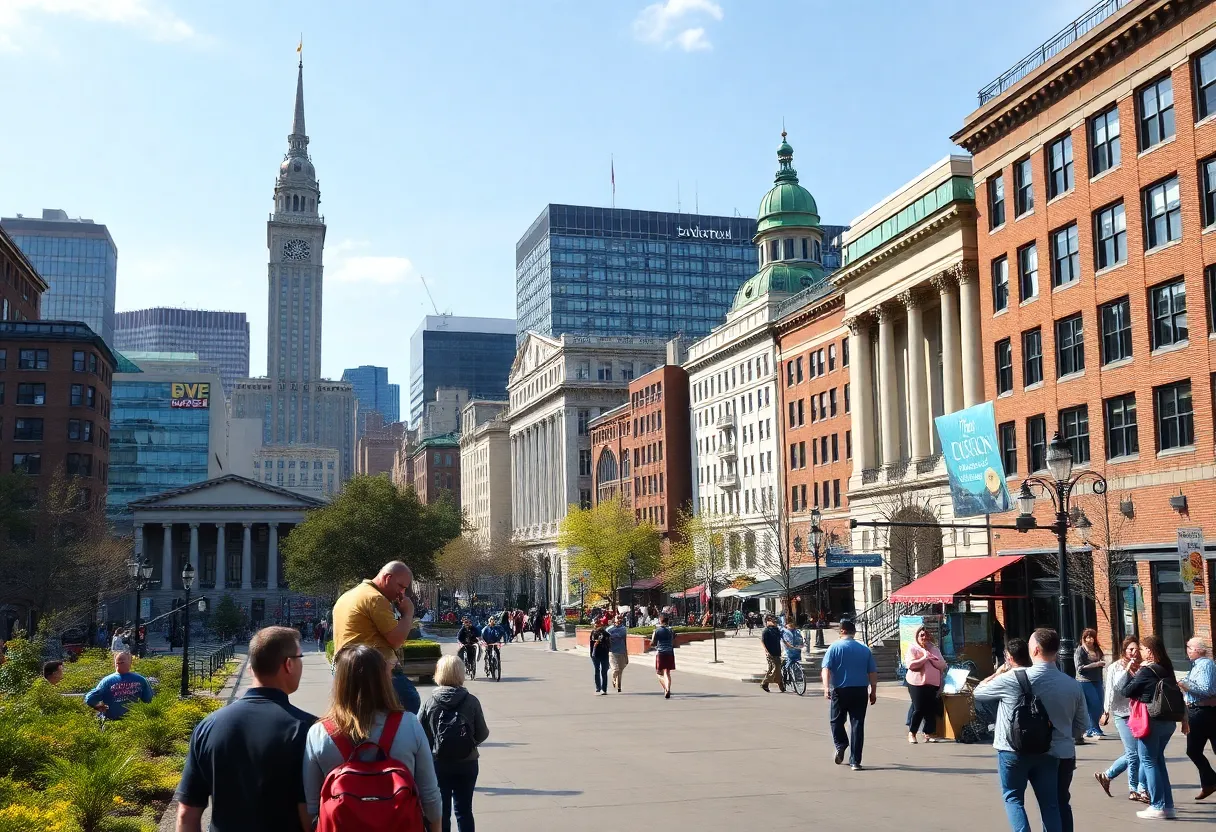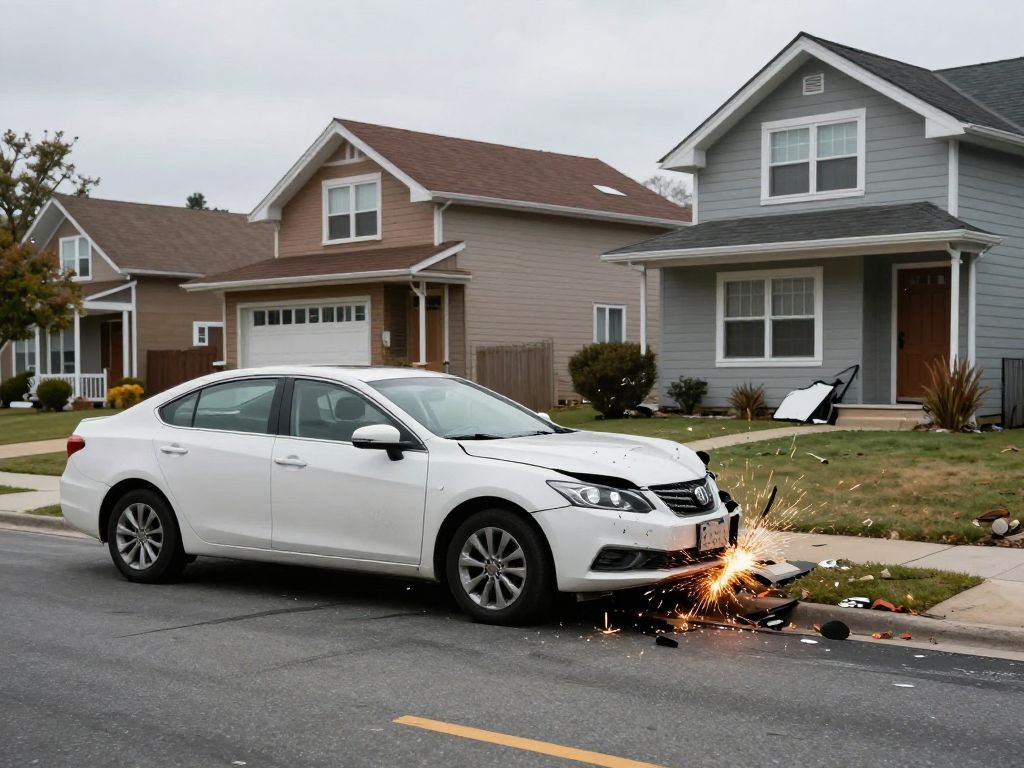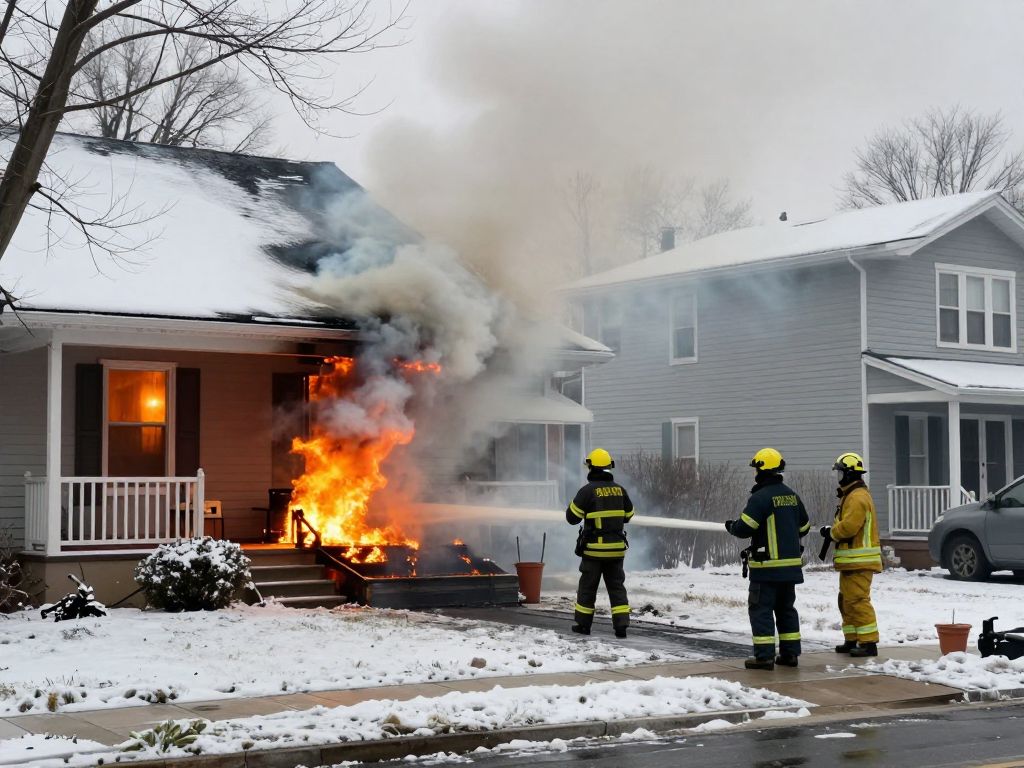Boston, September 7, 2025
News Summary
Incumbent Mayor Michelle Wu maintains a strong lead over challenger Josh Kraft in the Boston mayoral race as the city prepares for its preliminary election. Recent polls indicate Wu at 72% support compared to Kraft’s 22%. With broad backing across demographic groups and a favorable view from nearly three-quarters of voters, Wu’s campaign focuses on housing affordability and improving public schools. In contrast, Kraft has invested significantly in his campaign, emphasizing structural reforms and addressing the housing emergency.
Boston — Incumbent Mayor Michelle Wu holds a commanding lead over challenger Josh Kraft in the race for Boston mayor, according to recent polling, as the city heads into its preliminary election on Tuesday, September 9. An Emerson College poll shows Wu at 72% support to Kraft’s 22%, a gap of about 50 percentage points, signaling a wide advantage for the mayor going into the vote.
Key results and immediate context
The Emerson poll also finds broad support for Wu across demographic groups: roughly 74% of white voters, 61% of Hispanic voters, 79% of Black voters and 81% of Asian voters back Wu. Nearly three-quarters of Boston voters view Wu’s leadership favorably, while about 58% of voters hold an unfavorable view of Kraft. An earlier Suffolk University poll in July showed Wu leading by 60% to Kraft’s 30%, indicating consistent polling advantages for the mayor.
Fundraising and campaign finances
Kraft has injected significant personal funds into his campaign, contributing $3.5 million of his own money and raising a total of about $5.5 million. Both Wu and Kraft have raised over $1 million in donations this year, but campaign spending by Kraft has been notably higher. Kraft reported an income of $6.3 million last year.
Candidate backgrounds and other contenders
Michelle Wu is the incumbent mayor, first elected in November 2021 with 64% of the vote and carrying 19 of 22 Boston wards. Josh Kraft is a businessman and nonprofit leader, the son of Patriots owner Robert Kraft, who previously led the Boys and Girls Clubs of Boston and the New England Patriots Foundation. Other candidates on the ballot include community organizer Domingos DaRosa and former police officer Robert Cappucci.
Voting timeline and voter registration
Early voting took place from August 30 to September 5. The preliminary election is scheduled for September 9. As of February 1, there were nearly 422,000 registered voters in Boston: about 39% registered as Democrats, 4% as Republicans, and 56% unenrolled in any party.
Major campaign issues
Top issues shaping the campaign include housing affordability, the quality and management of Boston Public Schools, and the overall stewardship of city resources. Wu’s administration has promoted programs aimed at improving literacy and school conditions. Kraft’s platform emphasizes structural reforms to school management and focuses on addressing what his campaign calls a housing emergency in Boston. Voter preferences are split on some local matters, including the addition of bike lanes and public-safety responses to homelessness and drug-related issues.
Legal and federal developments
The campaign has also been affected by a federal dispute. The U.S. Department of Justice has filed a lawsuit against the city, the police department and Mayor Wu related to the Boston Trust Act, a sanctuary-style policy that limits local law enforcement cooperation with federal immigration authorities. The policy and the federal response have drawn attention to Wu’s leadership from national officials.
What to watch in the preliminary
With preliminary voting set for September 9, observers will watch turnout, how undecided and unenrolled voters break, and whether any shifts appear in neighborhoods where races have tightened in past contests. The preliminary will determine which two candidates, if any, advance to a November general election if more than two candidates remain competitive.
Background
Michelle Wu won her first mayoral election in November 2021 with a decisive margin and broad ward-level wins. Since taking office, her administration has pursued a mix of policy initiatives on housing, transportation and schools. Kraft has criticized how the administration has handled Boston Public Schools and some city operations, positioning himself as a proponent of managerial change. National attention on the race is driven by the candidates’ profiles, the federal lawsuit, and the broader policy debates playing out at the local level.
Other practical information
- Preliminary election date: September 9
- Early voting period: August 30–September 5
- Registered voters (as of Feb. 1): ~422,000
- Main candidates: Michelle Wu, Josh Kraft; other candidates include Domingos DaRosa and Robert Cappucci
- Top issues: housing affordability, public school quality, city resource management
Frequently Asked Questions
When is the Boston preliminary mayoral election?
The preliminary election is scheduled for Tuesday, September 9. Early voting took place from August 30 to September 5.
Who are the main candidates in the race?
The leading candidates are incumbent Mayor Michelle Wu and challenger Josh Kraft. Other candidates on the ballot include Domingos DaRosa and Robert Cappucci.
What do recent polls show?
Recent polling from Emerson College shows Michelle Wu at 72% and Josh Kraft at 22%, a roughly 50-point lead. A July Suffolk University poll showed Wu leading by about 60% to 30%.
How much money have the campaigns raised?
Josh Kraft has contributed $3.5 million of his own funds and raised about $5.5 million total. Both Wu and Kraft have raised over $1 million in donations this year, with higher campaign spending reported by Kraft.
Are there legal issues affecting the campaign?
The U.S. Department of Justice has filed a lawsuit against the city, the police department and Mayor Wu concerning the Boston Trust Act, a sanctuary-style policy. That legal dispute has become part of the broader public debate in the race.
What are the top issues voters are considering?
Key voter concerns include housing affordability, the quality and management of public schools, and public-safety responses to homelessness and drug-related issues. Transportation changes such as bike lanes are also a point of debate in some neighborhoods.
Quick reference table
| Item | Details |
|---|---|
| Preliminary election date | Tuesday, September 9 |
| Early voting | August 30 – September 5 |
| Recent poll (Emerson) | Michelle Wu 72%, Josh Kraft 22% |
| July poll (Suffolk) | Michelle Wu 60%, Josh Kraft 30% |
| Registered voters (Feb. 1) | About 422,000 (39% Democrats, 4% Republicans, 56% unenrolled) |
| Kraft campaign funds | $3.5M personal contribution; $5.5M raised total |
| Main issues | Housing affordability, public schools, city resource management, public safety |
Deeper Dive: News & Info About This Topic
HERE Resources
Boston Initiates Inflatable Nightclubs for Community Nightlife
Boston City Council Addresses Rising Crime at Mass and Cass
Operation Patriot 2.0 Targets Undocumented Immigrants in Massachusetts
Michelle Wu Holds Strong Lead in Boston Mayoral Race
Former Boston City Councilor Sentenced for Kickback Scheme
Michelle Wu Seeks Reelection in 2025 Boston Mayoral Race
Boston Addresses Safety and Homelessness at Mass. and Cass
Boston Voters Prepare for Key Preliminary Election
Boston Councilor Tania Fernandes Anderson Faces Sentencing
Governor Healey Criticizes Federal Actions in Massachusetts
Additional Resources
- MassLive: Wu Takes Massive Lead Over Kraft in New Boston Mayoral Poll
- Wikipedia: Boston Mayoral Election
- Emerson College Polling: Boston 2025 Poll
- Google Search: Boston Mayoral Election 2025
- WCVB: Boston 2025 Mayoral Election Dates
- Encyclopedia Britannica: Boston
- NBC Boston: 2025 Boston Mayoral Election Voter’s Guide
- Google News: Michelle Wu
- Wicked Local: Boston Mayor Election Voting Day
- MassLive: Boston Mayoral Candidates Spar Over Education Reform

Author: STAFF HERE BOSTON WRITER
The BOSTON STAFF WRITER represents the experienced team at HEREBoston.com, your go-to source for actionable local news and information in Boston, Suffolk County, and beyond. Specializing in "news you can use," we cover essential topics like product reviews for personal and business needs, local business directories, politics, real estate trends, neighborhood insights, and state news affecting the area—with deep expertise drawn from years of dedicated reporting and strong community input, including local press releases and business updates. We deliver top reporting on high-value events such as Boston Marathon, Head of the Charles Regatta, and Boston Harborfest. Our coverage extends to key organizations like the Greater Boston Chamber of Commerce and Associated Industries of Massachusetts, plus leading businesses in finance, biotech, and insurance that power the local economy such as Fidelity Investments, Biogen, and Liberty Mutual Insurance. As part of the broader HERE network, we provide comprehensive, credible insights into Massachusetts's dynamic landscape.





